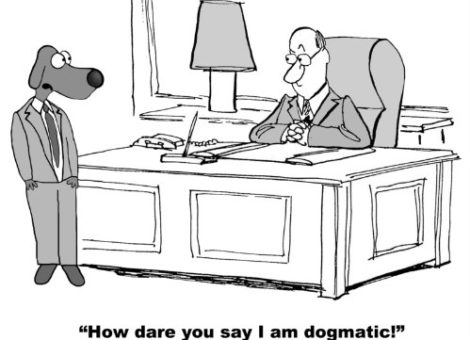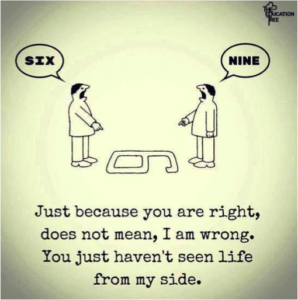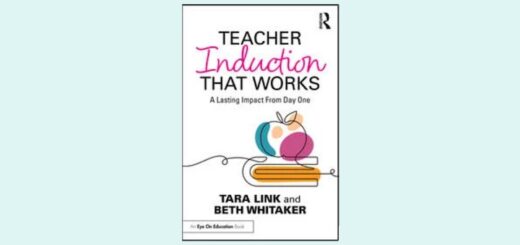Can Educators Learn to Disagree Respectfully?
A MiddleWeb Blog
 Getting Beyond the Education Echo Chambers
Getting Beyond the Education Echo Chambers
I don’t have a TV. I haven’t had one for close to twenty years. This political season I was happier than ever to not have one. The rancor in politics repulses me.
I’m not going to hide my own politics – I’m a die-hard liberal, and I truly think there is more mud slung toward my side than from it. But, either way, I just don’t want to hear it, read it, or otherwise give it the time of day. I can’t totally escape it, but I do my best.
I see some of the same argumentative energy in the eduworld, especially on Twitter. It’s not government politics, but it feels eerily reminiscent of it.

Ideas Not Ideology
We have always been a profession that can fall prey to confrontational thinking — often resorting to either/or arguments that tend to be less than nuanced. Remember the reading wars? Actually, did they ever end? I don’t think so.
As a former classroom teacher, literacy specialist, school librarian, and a life-long promoter of books and reading, I was thrilled at the move to empower “passionate readers” and build “book love.” Truly, I strive to do both, and if you talk to the children and families in my community, they’ll say I am pretty darn effective at it.
But I don’t fit the current ideological mold. I have always been a gal who walks to the beat of a different drum, and as an educator I sometimes think differently than is the norm on Twitter, on the blogosphere, and at national conferences.
As such, I have experienced what feels like being ganged up on and accused (with some inflammatory rhetoric) of not serving students. I can take it. I taught middle school for so long that I don’t have regular human feelings: I am made of hard-cold steel! But is this behavior we want to model in our profession?
Rancor and Snark
For example, I once wrote about how I believe that leveled texts can be helpful for teachers and students alike and was met with rancor on Twitter, because leveling is now bad (even Fountas & Pinnell now say so, or at least that’s how folks are interpreting what they actually said). You can read my thoughts on leveled texts here, but for the purposes of this post, skipping down to the comments is more interesting. You’ll see that I am begged not to use leveled texts as I am “damaging” my kids.

But I don’t believe in being dogmatic, terse, dismissive, or otherwise rude either. I recently worked with my staff on the idea of “confronting with care,” being open and honest but in a way that seeks to understand and support rather than criticize. We have also worked on being careful with our words and actions so we don’t seem rude when we disagree. I believe that keeping an open mind, while maintaining professional decorum, is a good thing.
In the name of full disclosure, I have to come clean. There have been times when I’ve responded to criticism with snark of my own. Read my piece, snottily called, AR Killed My Dog and Now It’s Coming for YOU! A Defense of Accelerated Reader and a Plea for Less Drama, for a taste of my personal brand of sarcasm.
Different Doesn’t Mean Bad
The bottom line is that I have been in and out of enough effective teachers’ classrooms to know that there isn’t one best way to do anything. Some of my teachers would be described as “cutting edge.” Their classrooms have flexible seating, they use the workshop method in reading and writing, and their classrooms sometimes seem like organized chaos to outsiders peering in. They are GOOD teachers.

There is room for all of us.
And we should probably try to be more supportive of each other and more conscious of how our communications with each other come across, especially in social media.
Questions to consider
In thinking about how educators can be mindful of how and why we disagree with each other, I wrote the following questions.
- Is it possible that there is more than one right way to teach? Does the idea that teachers who teach VERY differently from what we might view as ideologically correct are still effective? If so, what does that mean in terms of the concept of “best practices”?
- Is professional disagreement about theory, method, and practice good for or bad for education on a whole?
- When we discuss disagreements, what is the purpose? Do we seek to change each other’s minds? Do we seek to listen and learn?
- How can we open ourselves enough to really hear other educators’ points of view?
- What does it mean to assume best intentions? How does that assumption change how we engage in constructive differences of opinion?
- How can we “confront with care” when we really think someone is doing something that is bad for kids or the profession?
- How do we avoid being in an echo chamber where we continually find support for our current views without having to really think about the views of others?
- How can we support our own beliefs and opinions without denigrating those of others?
- Is there a way to be forceful and kind/polite at the same time?
- How do people on both sides of an issue use or misuse research in the debate?
These questions are a starting place. I am not going to pretend I have the answers. But the thinking they inspire might help us all reach out and seek common ground — or at least common respect.
































A valid and timely plea. I hope many teachers and administrators read and reflect on disagreeing in more appropriate manners. Fighting it out on social media with denigrating comments makes all of us educators look bad.
Thanks for your comments, Debbie!
I am in love with this post. I have seen a lot of ugliness on Twitter and other online discourse, too. These range from scary (like the physically and sexually threatening email I got last week in response to an article I wrote about discrimination in education – turns out the piece didn’t mesh with his racism) to comical (like when I posted news I heard about when the AERA Annual Meeting schedule will be released, and one guy left a string of comments mad at me that it was coming out so late …when I have absolutely nothing to do with the schedule’s release LOL). There are so many openminded, cordial, introspective Tweeters in our field, but also so many who are combative and don’t welcome disparate ideas. I pray the whole field reads your latest piece here. Yet another gift you give the field!
Wow! Thanks for sharing this! I was a little worried that this piece would offend. I’m glad it’s not just me, Dr. R!
I think you are both correct, Rita and Jenny! I am so ready for some common sense and civility in discussions. As educators aren’t we supposed to model empathy? Shouldn’t that start with how we talk to each other? How can we ask students to clean up their rhetoric when the adults are blasting each other with hyperbole, snakiness, and miscues?
So, SO true, Debbie!
It was awesome!
Oops! I meant to type “snarkiness.” Autocorrect, Sigh!
Interesting piece. I always wonder who establishes the norms in regards as dialogue. Who determines the norms for discourse? What one might see as “rude” someone else will see as direct. What one might see as “mean” someone else sees as truthful feedback. Comfort and power are both a common denominators in educational discourse too. Also ask yourself who is often labeled negatively when providing feedback? There is a root for all of this in regards to discourse in general, but especially in edutwitter and I’m curious if you know what that is.
I love everything about this comment, Shana! Great questions! I agree 100% about rudeness being in the eye of the beholder.
As a big city woman living in a very small town, sometimes folks think I’m being rude when I had no intention to be. I wrote about that in this piece for MiddleWeb, Reject Rudeness, Keep School Climate Positive! I would love your thoughts on that as well.
I also agree that “comfort and power are both common denominators in educational discourse too.” I think that there are many roots. One, the one that I addressed here, is the profession’s penchant to become dogmatic about what is “best” for teaching and learning and the unapologetic willingness to claim that we know what works in every situation. Another is a willingness to bend research anyway we want to suit our own thinking and to ignore studies we don’t like and also ignore teacher action-research or evidence-based support of methods.
Another, of course, is culturally based. For years I worked among Yupik folks in off-road communities in Alaska and routinely saw the ideas, beliefs, and opinions of the Yupik people ignored in favor of more mainstream (and more “white”) ideas about what school should be and what works best. I have had similar experiences in Latino and African American communities. If I’m 100% honest, I can admit that I have likely been complicit in the casual (or probably more accurately put, “systematic”) discrimination against certain communication styles, patterns, beliefs, and ideas about how to educate.
At my school, we developed norms that include, (1) Assuming best intentions and (2) Confronting with care. I certainly welcome other ideas and would love to hear more of your thoughts, Shana. Thanks for reaching out!